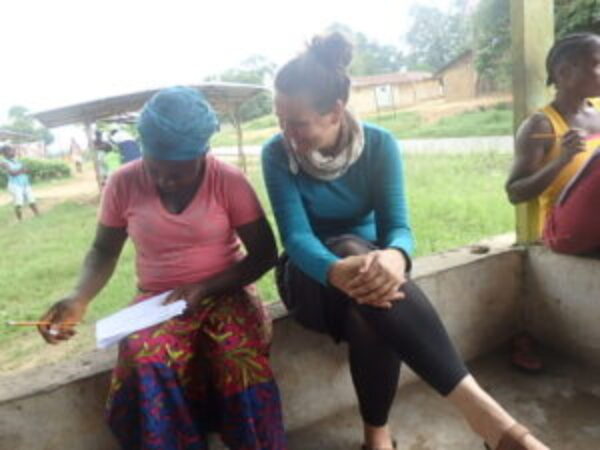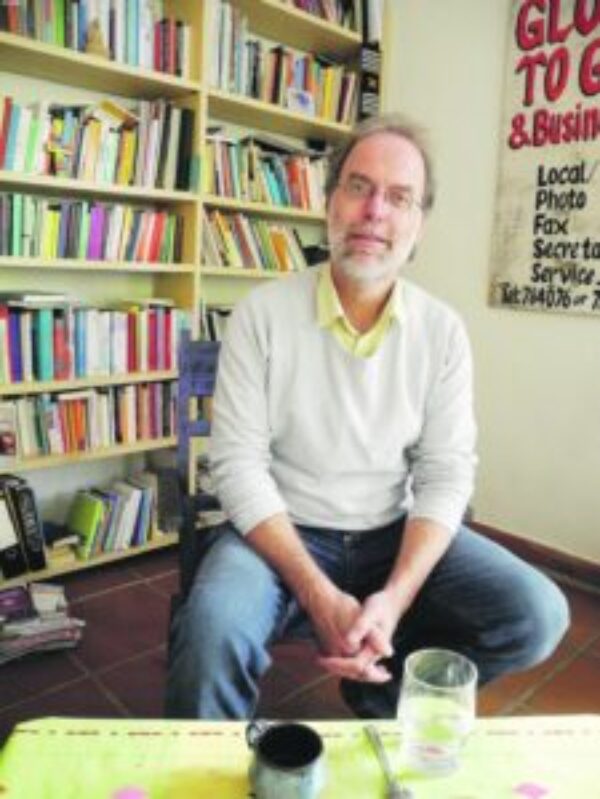Welcome to the homepage of our certificate course for small international archives and their employees! We are pleased to present you with an innovative, practical and digital training program that is specifically tailored to the needs of small archives.
About our course
Our course consists of six modules, each lasting two months. The aim is to impart sound knowledge and skills. These are essential for the preservation, maintenance and digitization of archival materials. We place particular emphasis on the topics of preservation of records, preservation of holdings and making documents and objects accessible for future research projects.
Why is this course important?
At a time when awareness of cultural heritage is constantly growing, it is essential that small archives secure their valuable holdings. This way, they can be preserved for future generations.Our course offers you the opportunity to deal with the challenges of storing and making documents from the colonial era accessible. You will also learn practical archival strategies.Another important point is the digitization of these holdings. This enables provenance research to make documents, objects and art objects brought to Germany discoverable or re-findable.
Your benefits
-
Practical modules: Each module is designed so that you can put theoretical knowledge directly into practice.
-
expertise: Learn from experienced professionals in the field of archiving and digitization.
-
networking: Make contacts with other employees of small archives and benefit from a valuable exchange.
We warmly invite you to become part of this exciting project. Work with us on the future of small archives! Discover the modules, find out about registration and become active in preserving our cultural heritage!
Get to know our initiators

We are pleased to introduce you to the project initiators of our certificate course for small archives These professionals bring extensive experience and a passion for archiving and development cooperation in an international context to make the course a success.
qualified archivist
Peg Koedel
Peg Koedel is an experienced graduate archivist who is involved in the field of digital education and archiving both nationally and internationally. After graduating from the Potsdam University of Applied Sciences, she worked for three years as a coordinator of the distance learning archive course, where she provided numerous participants and students with in-depth training in archiving.
Today, she works as a lecturer and has developed digital education concepts for the archive sector in order to adapt training to modern requirements. Her international experience includes two years as a consultant for SEAMEO INNOTECH, an intergovernmental institute in the Philippines. There, she focused on game-based education and digital archiving as part of the digital transformation of institute processes.
In addition, Peg Koedel was active in Liberia as a consultant for the National Adult Education Association of Liberia (NAEAL). In this role, she worked intensively on digital education in the field of adult education. In this role, she conducted various workshops and seminars on the topic of digital workflow in Liberia and Cameroon.
Through these diverse experiences, Peg Koedel brings valuable perspectives to the Certificate course for international archives: practical training in digitization, preservation of archival materials and provenance research for employees These enable participants to benefit from proven methods and innovative approaches.
Dr. Martin Frank
Dr. Martin Frank has been Africa Officer at the Berlin Mission since December 2017 (BMW). Martin Frank has a doctorate in mission theology and lived with his family in Ghana for five years. The central aspect of his work is to maintain contact with three Lutheran churches in five different African countries and to support the partnerships there at the local level. These churches are historically connected with BMW: The ELCSA (Evangelical Lutheran Church in Southern Africa), ELCT (Evangelical Lutheran Church in Tanzania) and the Mekane Yesus Church (EECMY) in Ethiopia. This includes cooperation on development issues (water projects, women's work), organizing joint projects such as youth exchanges or visitor programs. Martin Frank is also involved in provenance research and deals with the history, storage and exhibition concept of archives and objects that were brought to Germany during the colonial period. But diaries and station reports, especially by the Berlin missionaries in archives in Berlin as well as in Tanzania and South Africa, are also part of his area of interest. What cultural and ecclesiastical significance do these archives have, how can they be made accessible worldwide and promote the exchange of knowledge? These are questions that he pursues with great interest and commitment.
Together, Peg Koedel and Dr. Martin Frank are committed to ensuring that small archives receive the necessary tools and knowledge to preserve and digitize their valuable holdings.
